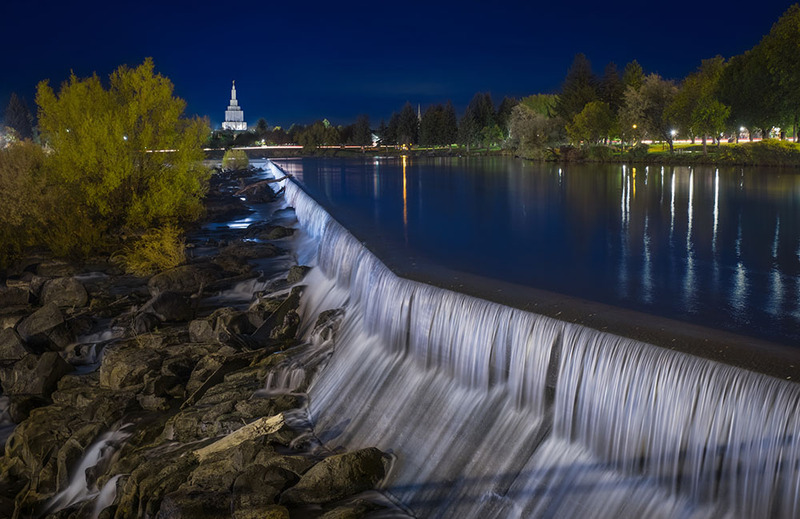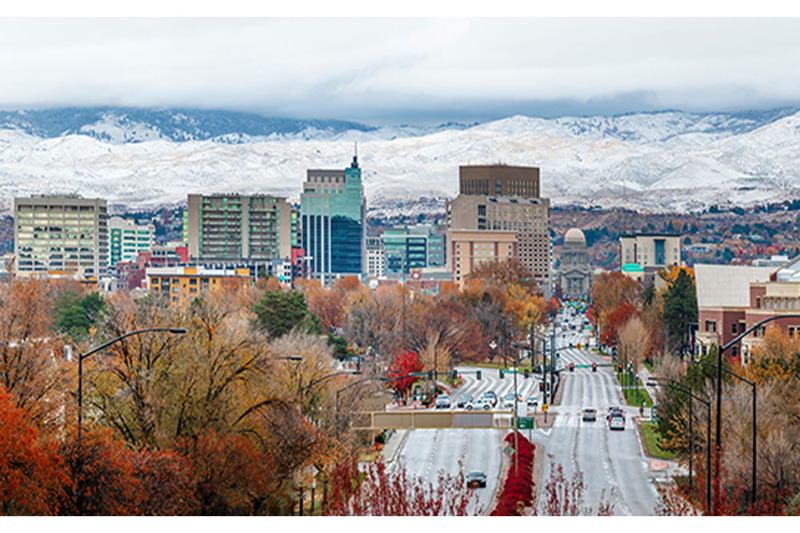AMERICAN WEDDINGS BLOG
Stay up to date with the latest wedding ceremony trends, script writing inspiration, tips and advice for first-time officiants, and news that matters to couples and wedding ministers.
Stay up to date with the latest wedding ceremony trends, script writing inspiration, tips and advice for first-time officiants, and news that matters to couples and wedding ministers.
Published Friday, Mar. 25th, 2022
Last updated Wednesday, Mar. 23rd, 2022

From its unspoiled wilderness to the bustling sidewalks of Boise and Idaho Falls, Idaho offers romantic backdrops of every kind. It's easy to see why this gem of a state is a top destination for weddings.
Applying for a marriage license in this Mountain State will look different in each county, so it’s important to get a head start on the planning process to avoid unnecessary stress. With this in mind, we’ve compiled a short guide to help you begin.

Got one? Whew! There will be a few more boxes to check, but the hardest part’s over.
A wedding officiant is the person who conducts your ceremony and signs the marriage license, making things legal.
A friend or relative can perform your wedding ceremony if they’ve been ordained. (Get ordained online for free with AMM.)
If you want to hire a professional officiant, the state has many qualified officiants to choose from. The following people are authorized to solemnize marriage in Idaho:
Various judges, justices, and magistrates, the current lieutenant governor, a current mayor, various tribal officials, or a priest or minister of the gospel of any denomination.
(Find a complete list of authorized officiants and more Idaho marriage laws here.)
Idaho is home to rugged wilderness, iconic potatoes, and world-class arts and restaurant scenes in cities like Boise, Meridian, and Idaho Falls, making it a favorite for destination weddings. Whether you’re dreaming of a big to-do or a romantic elopement for two -- there’s something for everyone!
Popular dates, venues, and officiants book up fast, so start early. And remember you’ll need permission (and a permit) to use a public space, such as a city or state park or recreational area. Permits can take weeks to process, so factor this into your timeline, too.
Marriage License Quick Facts
No Waiting Period
1 Year Expiration Period*
30 Day Return Period
*There’s no expiration date on Idaho marriage licenses, however if your license isn’t used within 1 year, you’ll need to contact the Idaho Bureau of Vital Records and Health Statistics for more information before holding your ceremony.
Alright, time to make sure your wedding’s legal! We’ll break down each part of the marriage license process, one step at a time:
You’ll apply for your marriage license through the County Recorder Office. Some counties require couples to make an appointment in advance. You don’t need to be an Idaho resident to marry there.
If you’re planning a wedding anywhere in Idaho, we recommend contacting the County Recorder closest to your venue to learn more.
The cost of a license in Idaho is about $30. This price varies by county and you may be charged a significant additional fee when applying on a Saturday. Many County Recorders only accept cash, so plan ahead! There’s no fee to register your marriage after the ceremony.
There’s no waiting period in Idaho between the time an application is filed and when a license can be used. Same day ceremonies are allowed.
An Idaho marriage license can be used in any county in the state. Although the license doesn’t technically expire, it’s recommended that you use it within 1 year of issuance. If you don’t use your license within 1 year, you'll need to contact the Idaho Bureau of Vital Records and Health Statistics.
The license must be signed by the couple and their marriage officiant following the ceremony, and returned to the County Recorder. (We’ll cover this more below.)
The license must be returned within 30 days of the ceremony.

Get a Bonneville County marriage license in beautiful downtown Idaho Falls.
Once you’ve chosen a date, a venue, and have your marriage license details worked out, you’ll be ready to meet with your wedding officiant to plan the ceremony!
Couples: How to Work Best With Your Wedding Officiant
This is when things start to come into focus. You’ll talk about the tone of your ceremony, the ‘vibe’ you want to create for your guests, and any special elements and unity rituals you want to include. You and your officiant might meet a few more times to exchange more ideas, fine-tune a script, or rehearse the ceremony leading up to the wedding day.
AMM’s website is full of resources to help you decide what kind of ceremony you want, tips on working well with your officiant, and advice on keeping your ceremony authentic and on budget.
Visit Articles for Couples on our American Weddings blog, or browse general articles by category or keyword.
Aside from yourselves, the most important thing you’ll bring with you on the wedding day is your marriage license -- because no license means no marriage. Your officiant won’t be able to perform the wedding without having a license present (even if you have it at home), so make sure it’s with you.
After the ceremony, you and your officiant will sign the license. For tips on how to complete the license, head here.
Once it’s signed, you must record it with the local County Recorder within 30 days of the ceremony. Check with your county for details.
After it’s been recorded, you’re officially married!

Getting married in Ada County? Head to Boise!
We’ve got everything you need to understand the state’s licensing and registration requirements, any ministry credentials and paperwork you might need, and helpful tips on how to perform a wedding in several cities in the state.
Idaho Wedding Officiant Training Quiz
Three tips for planning a WTF (Wedding That Fits) Wedding Celebration
Become a Wedding Officiant with Our Free Online Ordination!